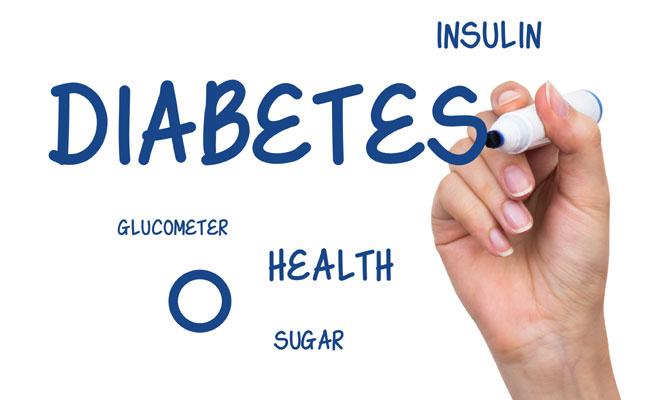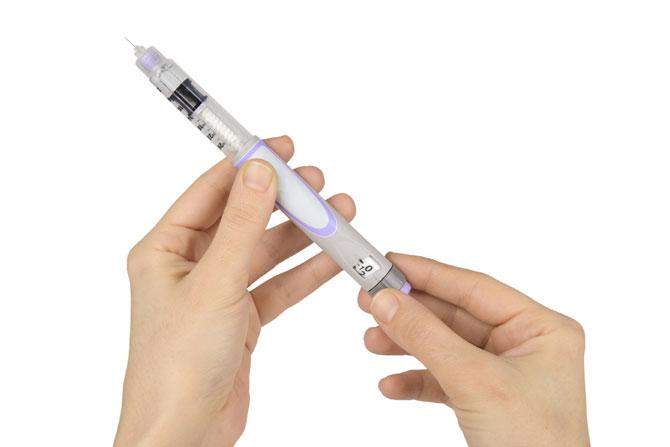Diabetes, an illness where a person has high blood glucose either because they are not producing enough insulin, or because the body does not respond properly to insulin is a major cause of concern worldwide. On the occasion of World Diabetes Day we

Diabetes
Diabetes, an illness where a person has high blood glucose either because they are not producing enough insulin, or because the body does not respond properly to insulin is a major cause of concern worldwide. On the occasion of World Diabetes Day we present an overview about the disease, it's signs, symptoms, preventive measures that can be taken along with some facts that were unearthed during a 2015 survey by the International Diabetes Federation...
Also Read: Shimla to host walk to mark World Diabetes Day
ADVERTISEMENT

About diabetes
Diabetes, also known as Diabetes mellitus, is a chronic disease that occurs when the pancreas is no longer able to make insulin, or when the body cannot make good use of the insulin it produces. Insulin, a hormone made by the pancreas acts like a key to let glucose from the food we eat pass from the blood stream into the cells in the body to produce energy. All carbohydrate foods are broken down into glucose in the blood and insulin helps glucose get into the cells. Not being able to produce insulin or use it effectively leads to raised glucose levels in the blood. This condition is known as hyperglycaemia. Over the long-term high glucose levels are associated with damage to the body and failure of various organs and tissues.
Types of Diabetes
There are three main forms of diabetes...
Type 1 diabetes: Appears very suddenly and is currently incurable. Without insulin, a person with type 1 diabetes will die. It results from the pancreas's failure to produce enough insulin and is hence was previously referred to as "insulin-dependent diabetes mellitus" (IDDM) or "juvenile diabetes". Type 1 diabetes can mainly occur due to family history of diabetes, genetics, infections and other environmental influences.

Regular intake of insulin is a must for patients suffering from type 1 diabetes. Picture for representational purposes
Type 2 diabetes: It begins with insulin resistance, a condition in which cells fail to respond to insulin properly. Type 2 diabetes can go unnoticed and undiagnosed for years. The primary cause is excessive body weight and not enough exercise. This form was previously referred to as "non insulin-dependent diabetes mellitus" (NIDDM) or "adult-onset diabetes". Type 2 diabetes is manageable with dietary changes and increasing physical activity. In some cases medication is required.
Gestational diabetes (GDM): Appears during pregnancy and can lead to serious health risks for both the mother and child. Gestational diabetes is associated with an increased risk of both mother and child developing type 2 diabetes later in life

Signs and symptoms of diabetes
- Frequent urination
- Weight loss
- Lack of energy
- Excessive thirst
- Slow-healing wounds
- Fatigue
- A tingling sensation or numbness in the hands or feet
- Frequent infections
- Vomiting and stomach pain (often mistaken as the flu)
- Frequent infections
- Lack of interest and concentration
Diabetes facts
>> 1 in 11 adults have diabetes, which amounts to nearly 415 million from the world's population.
>> 46.5% of adults with diabetes are undiagnosed.
>> 12% of global health expenditure is spent on diabetes, which amounts to about USD 673 billion.
>> By 2040, 1 adult in 10 (642 million) will have diabetes.
>> 1 in 7 births is affected by gestational diabetes.
>> Three quarters of people with diabetes live in low and middle income countries.
>> 542,000 children have type 1 diabetes.
>> Every 6 seconds a person dies from diabetes. This amounts to 5 million deaths on a daily basis.
>> There are 318 million adults worldwide, with impaired glucose tolerance, which puts them at high risk of developing the disease in the future.
>> 215.2 million men and 199.5 million women are said to be suffering from diabetes as of 2015. The figures are projected to increase to 328.4 million and 313.3 million respectively.
>> USA has the most children with type 1 diabetes between 0-14 years, amounting to 84,100.
>> Indian is second on the list of ten countries containing 70,200 children suffering from type 1 diabetes.
>> The United States spends USD 320 billion dollars on diabetes treatment.
>> China has 109.6 million adults suffering from diabetes seconded by India with 69.2 million.

Regular physical activities like jogging can reduce diabetes risk. Those suffering from the disease should also keep fit with daily exercise in order to keep the illness at bay. Pic for representational purposes
Prevention
30 minutes of any physical activity on a daily basis can reduce the risks of developing type 2 diabetes by 40 per cent. Activities like swimming, cycling, brisk walking, dancing are most recommended by health and medical professionals. A balanced and nutritious diet is essential for reducing risk factors for cardiovascular diseases. Avoding smoking, stress, irregular sleeping patterns can also be of great help.
 Subscribe today by clicking the link and stay updated with the latest news!" Click here!
Subscribe today by clicking the link and stay updated with the latest news!" Click here!







